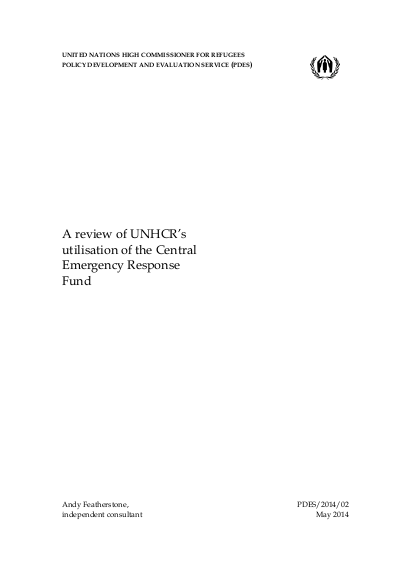
The review seeks to assess the extent to which factors internal to United Nations High Commissioner for Refugees (UNHCR) or to CERF, including partnerships and policies, influence the effectiveness of the CERF funding towards UNHCR’s protection and assistance programmes, identify whether there are any major gaps and challenges and make appropriate recommendations to address them. The review does not attempt to assess the effectiveness or impact of UNHCR’s CERF-funded protection and assistance programmes per se, but rather to assess factors pertaining to the UNHCR-CERF relationship that affect the process of funding UNHCR programmes and resulting funding trends in the past five years. The research draws on an analysis of CERF funding to UNHCR and from meetings in Geneva, New York, Kenya, Uganda and Pakistan. Input was elicited from a range of key informants through interviews with UNHCR staff at headquarters and in CERF recipient countries, Non-governmental Organisations (NGO) partner staff, CERF secretariat staff, United Nations (UN) agency staff and sector/thematic specialists. This was supplemented by an online survey which was targeted at UNHCR CERF focal points in countries with a recent history of participation in CERF processes. A literature review was undertaken which included CERF country reviews and evaluations, evaluations of recent UNHCR humanitarian responses and sector-specific and country-specific documents. Data from secondary documentation and key informant interviews was complemented by a comparative case study analysis of UNHCR approaches to CERF utilisation in Kenya, Uganda and Pakistan.